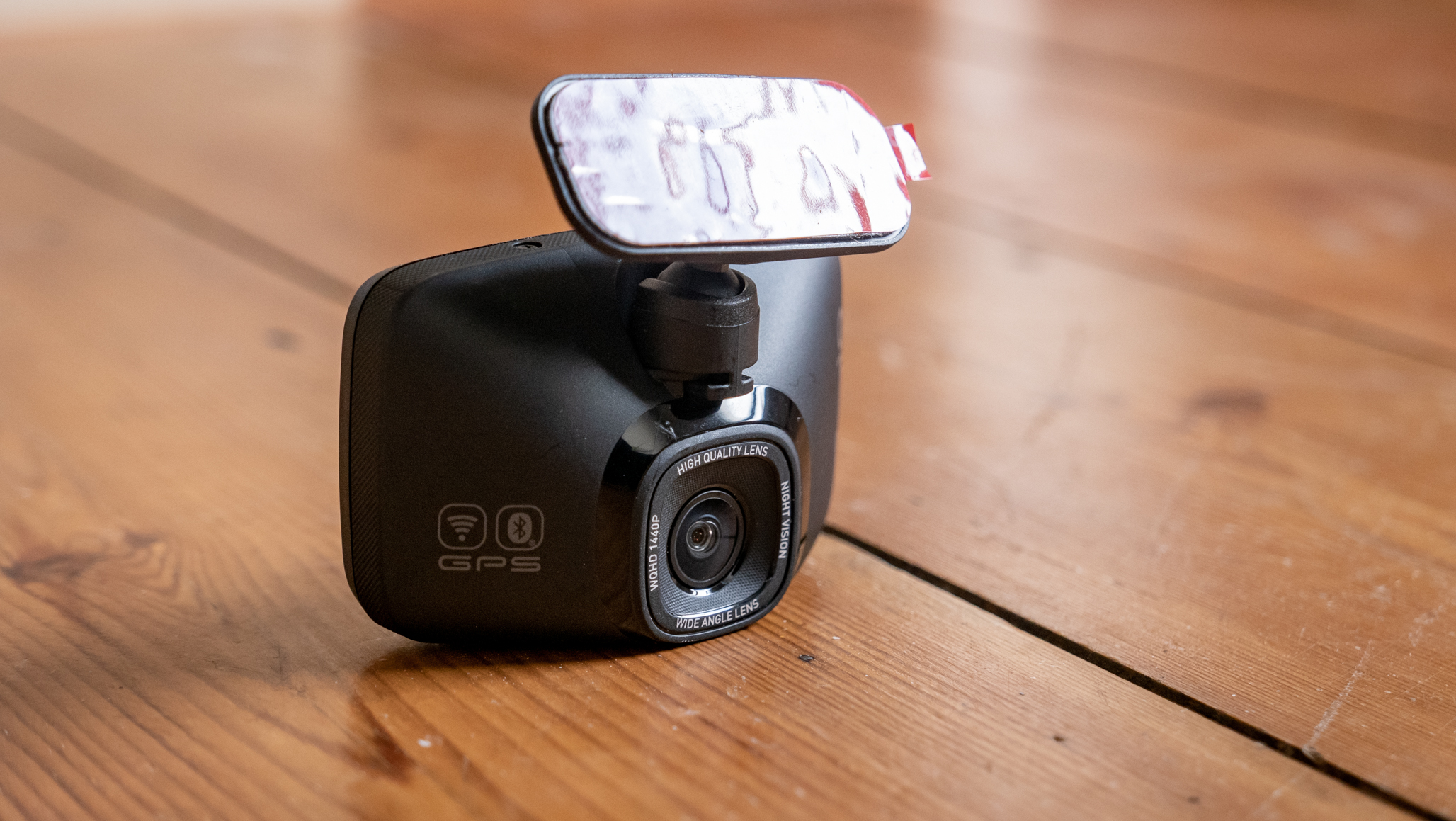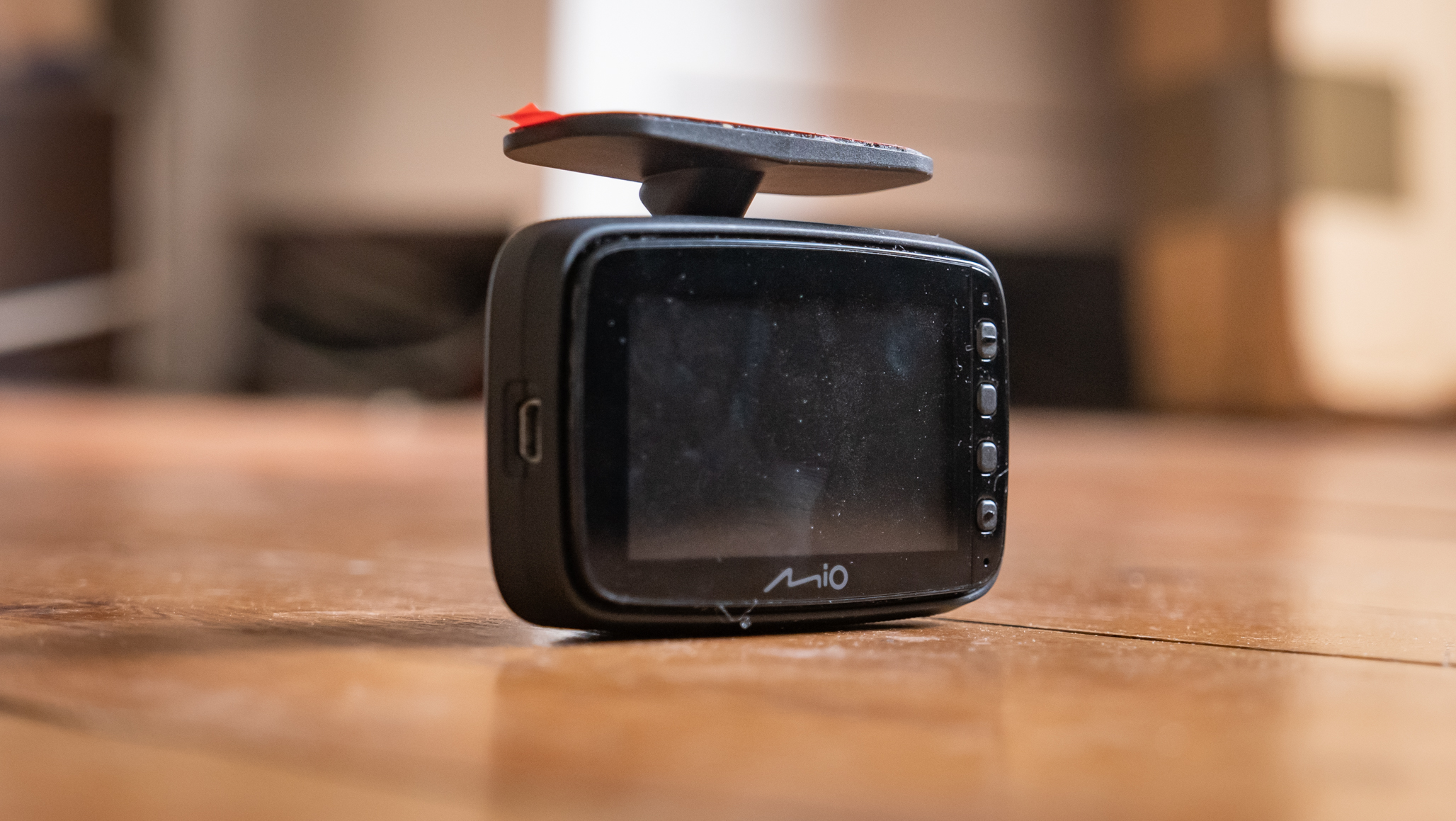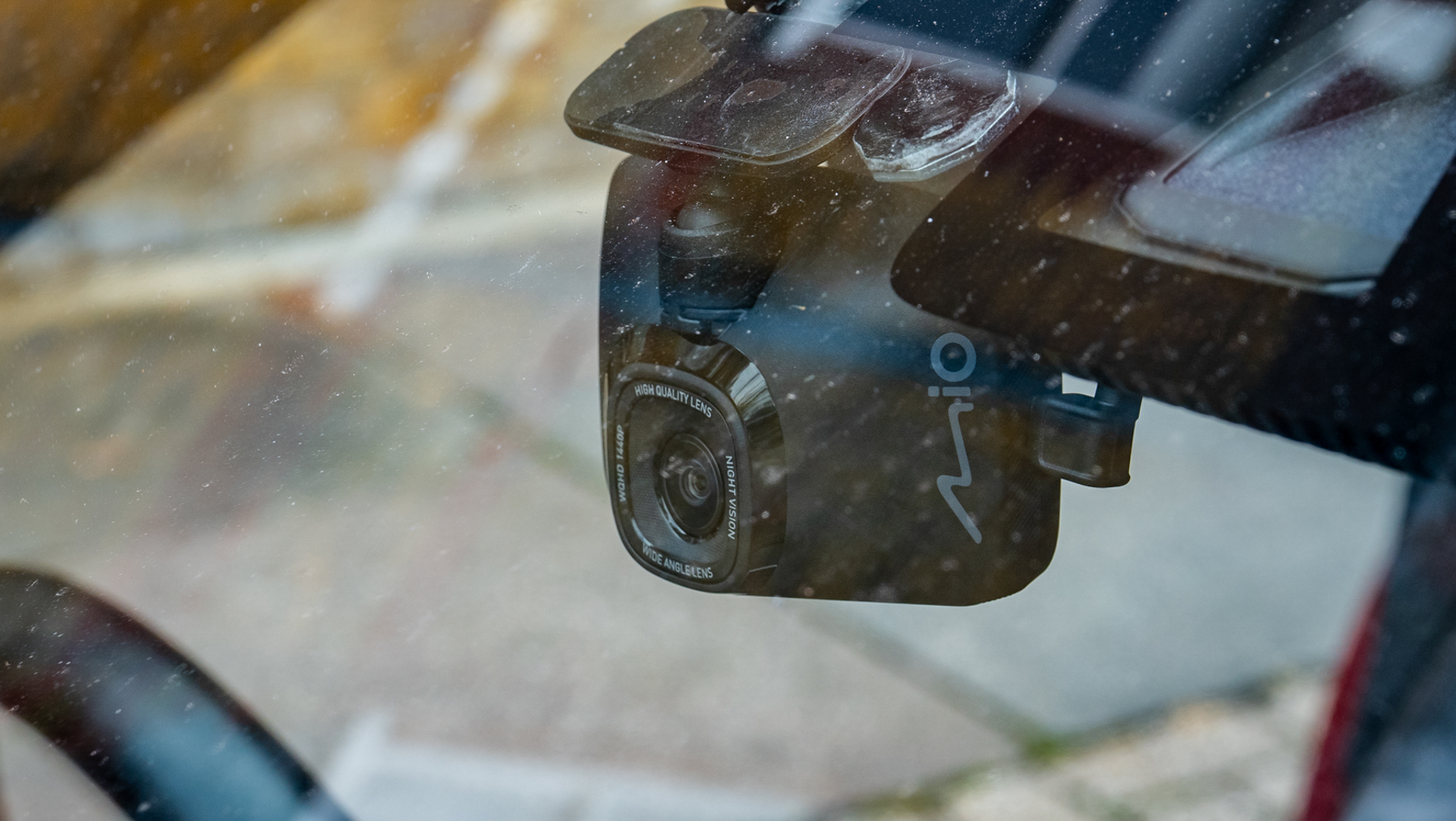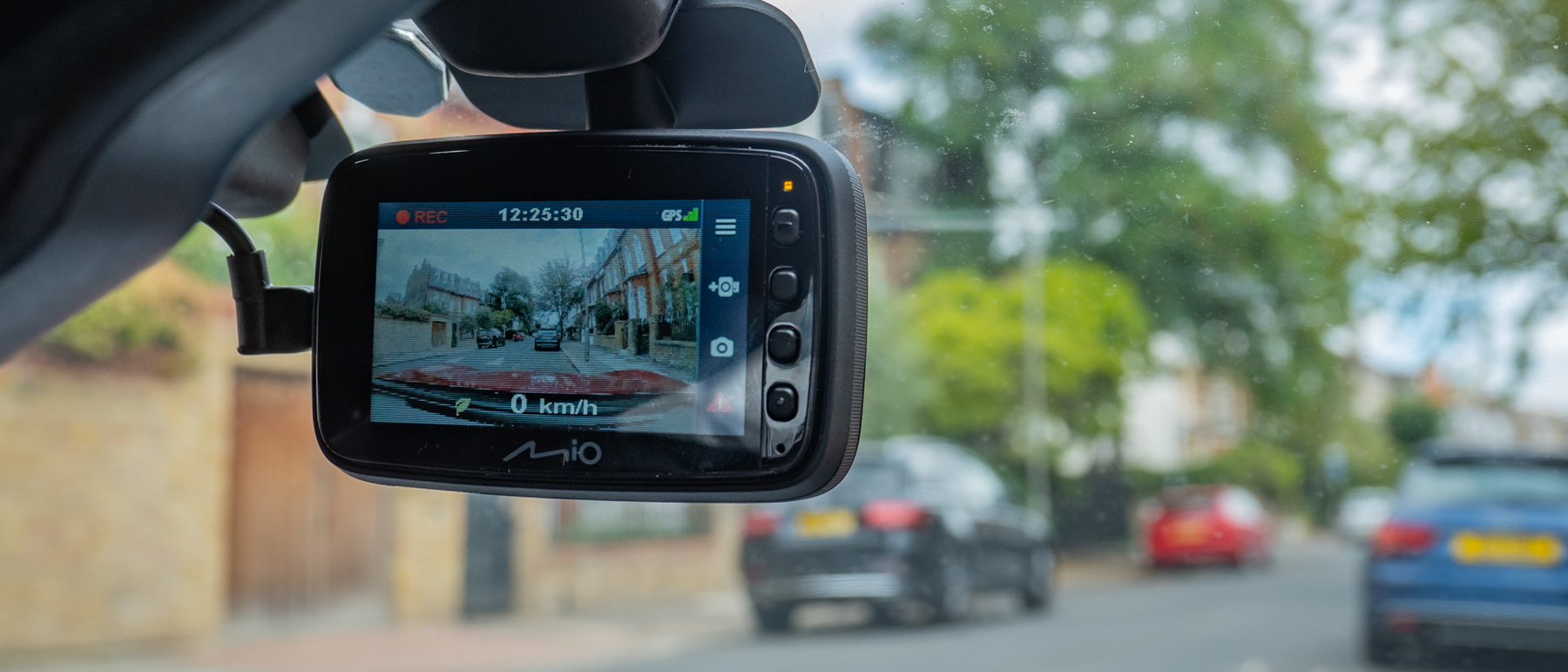Digital Camera World Verdict
The MiVue 818 by Mio is a dash cam that shoots in beyond-Full HD resolution, has integrated Bluetooth, Wi-Fi and GPS, and comes with a wide range of additional features, including a clever average speed camera warning system, collision warnings and a fully-fledged video management app for Windows and Mac. 60fps recording at 1080p is welcome, and so too is optional parking modes and wide dynamic range footage.
Pros
- +
Full HD at 60fps
- +
Wide range of driver assistance features
- +
Integrated Wi-Fi and GPS
Cons
- -
Too many features for some drivers
- -
Poor display viewing angles
- -
Parking mode requires additional hardware
Why you can trust Digital Camera World
The MiVue 818 is a circa-£150 dash cam from Mio. It offers a video resolution greater than Full HD, as well as GPS, optional parking mode, connectivity via Bluetooth and Wi-Fi, and average speed camera alerts.
This model fits into the lower middle of Mio’s dash cam range, above the 792 and 812, but below the rest of the 8XX collection.
In this sector of the market, the MiVue 818 finds itself up against stiff competition from the likes of Garmin, Nextbase and Thinkware.
Mio MiVue 818 specifications
Resolution: 1440p at 30fps, 1080p at 60fps
HDR: No
Field of view: 140 degrees
Display: 2.7in
Battery: 240mAh
Voice control: No
Speed camera alert: Yes, with average speed cameras too
Dimensions: 85.6 x 54.7 x 36.1mm
Weight: 86.1g
Rear camera: Optional extra (MiVue A50)
Key features


The headline feature of the MiVue 818 is its beyond-HD video quality. It has a resolution of 2560 x 1440 and operates at 30 frames per second. A higher resolution means more pixels, and a sharper image with more details. This can be crucial when it comes to using dash cam footage for identifying key details like vehicle registration plates and street signs.
The MiVue 818 can also record Full HD 1080p at 30 or 60fps. The latter makes for smoother footage that is clearer to view when paused, but doesn’t have the superior resolution of 1440p. For us, we think 1080p is plenty, and doubling the frame rate to 60fps for smoother footage is worth more than the extra pixels.
Other key features of the 818 include Wi-Fi for quickly transferring videos to your smartphone, GPS for adding speed and locational information to your videos, and an average speed camera alert system.
We haven’t seen this in a dash cam before, where the system not only warns about camera location, but also calculates your average speed in real time, helping you stay below the limit between each camera. The system works, but can be a distraction. We prefer to look at our vehicle speedometer or enable cruise control, instead of relying on the dash cam and its calculations.
There’s also a parking mode, which requires hardwiring the camera to your car for a constant source of power, and the option of connecting Mio’s rear-facing camera, called the MiVue A50.
Build and handling

The 818 looks like many other dash cams, in that it is fairly small, with a lens in the middle and a 2.7-inch display on the rear, with buttons alongside for navigating the user interface. It attaches to the windscreen using a mount that slides onto the front of the camera, then sticks to the screen with an adhesive pad.
A ball-and-socket joint provides enough movement to ensure the camera works in any vehicle, to matter the rake of the windscreen. The way the mount attaches to the camera isn’t the best we have seen; it fits securely, but lacks the smoothness and quality we’ve seen from other dash cams at this price point.
The camera has a small, 240mAh battery of its own, but this is only really intended for keeping the camera running for a short while after the car has been turned off. During use, power comes from an included mini USB cable that fits to the car’s 12V lighter socket.
Unfortunately, the included charger doesn’t offer an extra USB port, so if you normally power your phone from the 12V socket, you’ll have to replace it with the dash cam. Or, purchase a 12V adapter with two USB ports, and use a different cable for powering the dash cam.
Performance

Video recorded in a resolution slightly above Full HD is always a nice bonus to have, and in this case it means the MiVue 818 produces footage that is slightly sharper and more detailed than some other dash cams at this price point. That said, we prefer to record at a higher frame rate where possible, so recommend buyers use the 1080p Full HD at 60 frames per second option instead.
Setting up the camera is easy enough, but just remember to format your microSD card before you get started. Also, while you can extract footage from a memory card in the conventional way, the MiVue’s way of organizing recordings means you are better off playing by the rules and using Mio’s smartphone app to view and transfer video. Integrated Bluetooth and Wi-Fi make this relatively painless. Mio also offers a free, comprehensive video viewing and management app for Windows and Mac.
Some buyers will love the speed camera and average camera warning system, but we prefer our dash cams to perform one job and otherwise be distraction-free. Limited viewing angles mean the screen is actually quite hard to see clearly at a glance when positioned centrally in the vehicle, and therefore off to the side of your line of sight.
Verdict

The MiVue 818 is a feature-packed dash cam that is relatively compact, easy to set up, and with good video recording capabilities. The extra features are welcome, and the average speed camera alert system is particularly interesting, but we feel most buyers will focus on the strong video performance, integrated Wi-Fi and GPS and optional parking mode above all else. That said, a suite of driver assistance and warning systems, like fatigue alert and forward collision warning, will likely be well-received by some.
We think this dash cam is relatively well priced at £160 and will appeal to drivers who want a dash cam that is smarter and with more additional features than most.
Read more guides:
Best dash cams
Best front and rear dash cams
Best Uber dash cams
The best camera phones today
Best indoor security cameras
Best outdoor security cameras
best action cameras
The best helmet cameras
Best backup camera
Alistair has been a journalist since 2011 and used to be Deputy Technology Editor at IBTimes in London. His specialist tech subjects include smart home gadgets, phones, wearables, tablets and dashcams. He is the host of The AutoChat Podcast.


